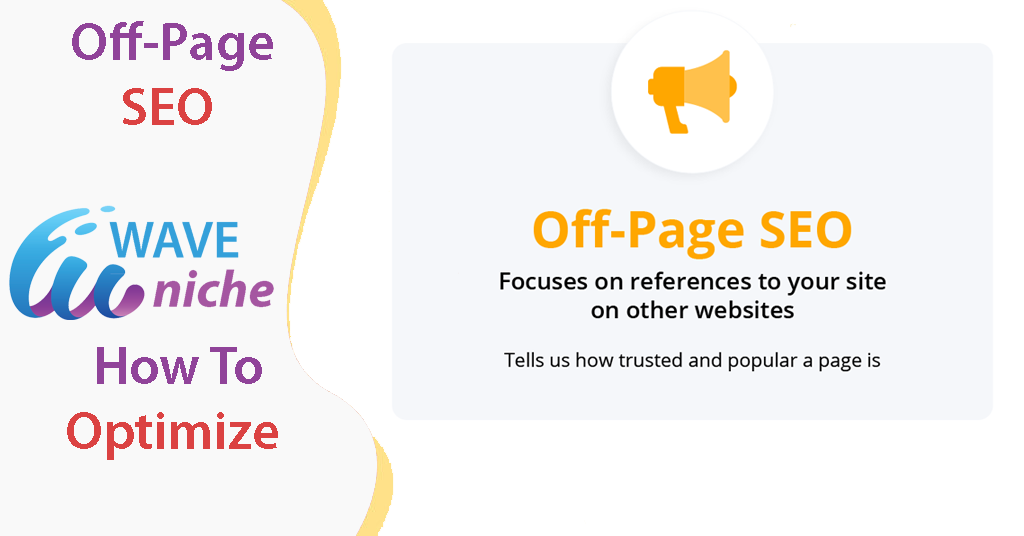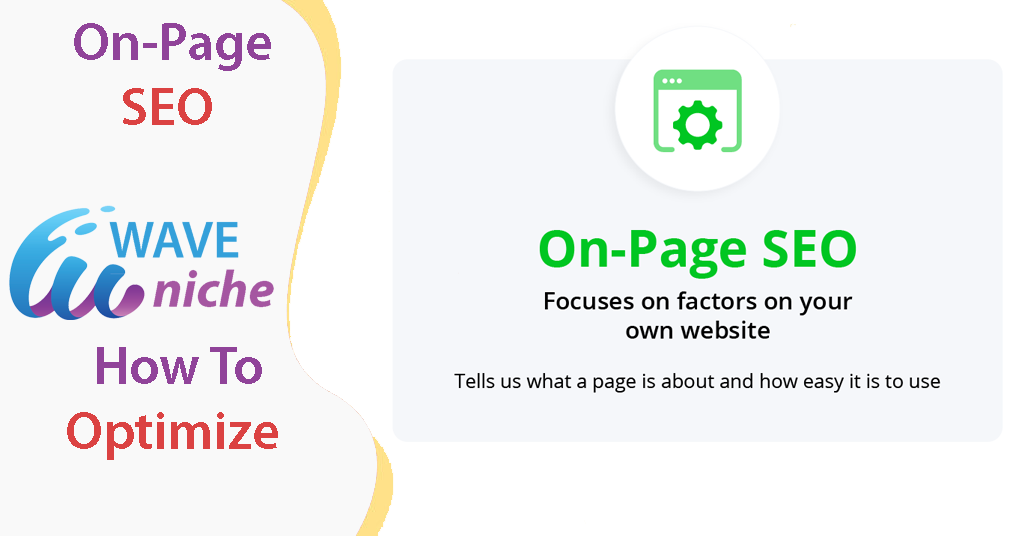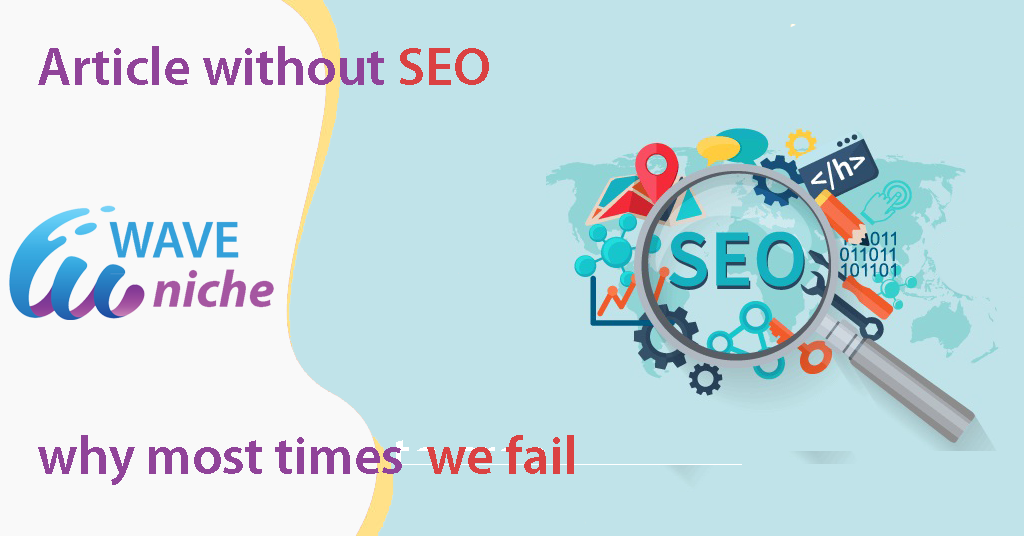Off-page SEO refers to all the optimization techniques that can be applied outside your website to improve its visibility and ranking in search engines. This includes tactics such as link building, social media marketing, and online reputation management.
Here are some tips for optimizing off-page SEO:
Link building:
Build high-quality links to your website from other reputable websites in your industry. This can be achieved by creating valuable content, guest blogging, or reaching out to other websites to request a link.
You can read more about link building here
Social media marketing – SMM:
Build a strong social media presence by creating and sharing valuable content, engaging with your audience, and using hashtags to increase your reach.
You can read more about Social media marketing here
Online reputation management – ORM:
Monitor your online reputation and respond to negative reviews or comments promptly. Encourage satisfied customers to leave positive reviews on review sites and social media.
Online reputation management (ORM) is the process of monitoring, analyzing, and influencing your online reputation and brand image. ORM is important because a positive online reputation can help you attract more customers and improve your business’s credibility, while a negative online reputation can damage your brand and cause you to lose business.
Here are some tips for managing your online reputation:
- Monitor your online presence: Use monitoring tools to keep track of what people are saying about your brand online. This will help you to identify any negative comments or reviews and respond to them promptly.
- Respond to negative comments: If you receive a negative comment or review, respond to it promptly and professionally. Address the issue and offer a solution to the problem.
- Encourage positive reviews: Ask your satisfied customers to leave positive reviews on review sites and social media. This will help to improve your online reputation and attract more customers.
- Create valuable content: Create and share valuable content such as blog posts, infographics, and videos. This will help to establish you as an authority in your industry and improve your online reputation.
- Engage with your audience: Engage with your audience on social media and other platforms. Respond to comments and messages promptly and create a positive and engaging online presence.
- Build a strong brand: Build a strong brand that is associated with positive values and high-quality products or services. This will help to improve your online reputation and attract more customers.
Remember that managing your online reputation is an ongoing process that requires time and effort. By implementing these tips consistently over time, you can improve your online reputation and build a strong and credible brand image.
Influencer marketing:
Collaborate with influencers in your industry to reach a wider audience and build brand awareness.
Influencer marketing is a type of marketing that involves partnering with individuals who have a large following on social media to promote your brand or products. Influencers can be celebrities, Instagram, YouTubers, Facebook, TikTok, bloggers or anyone who has a significant following on social media and is seen as an authority in a particular niche.
Here are some tips for implementing an influencer marketing campaign:
- Define your goals: Define your goals for the campaign and identify the metrics you will use to measure its success. Examples of goals include increasing brand awareness, generating leads, or increasing sales.
- Identify relevant influencers: Identify influencers who are relevant to your brand and target audience. Look for influencers who have a large following, high engagement rates, and who share your brand values.
- Build a relationship: Build a relationship with the influencers by engaging with them on social media, commenting on their posts, and sharing their content. This will help to establish a relationship and make it easier to approach them for a partnership.
- Set expectations: Set clear expectations for the campaign, including the deliverables, timeline, and compensation. Make sure that both you and the influencer are on the same page and that there are no misunderstandings.
- Create high-quality content: Work with the influencer to create high-quality content that resonates with their audience and promotes your brand. This could be in the form of sponsored posts, product reviews, or collaborations.
- Measure and optimize: Measure the success of the campaign using the metrics you identified earlier and use the insights to optimize future campaigns.
Remember that influencer marketing is just one part of your overall marketing strategy. By working with relevant influencers to create high-quality content, you can increase brand awareness, reach new audiences, and drive sales.
Content marketing:
Create valuable content such as blog posts, infographics, and videos that will attract links and shares from other websites.
Content marketing is a marketing strategy that involves creating and sharing valuable, relevant, and consistent content to attract and retain a clearly defined audience. The goal of content marketing is to establish a relationship with the audience by providing them with useful information that helps them solve problems, answer questions, or make informed decisions.
Here are some tips for implementing a content marketing strategy:
- Define your target audience: Define your target audience and create content that is tailored to their needs, interests, and preferences.
- Set goals: Set specific goals for your content marketing strategy, such as increasing website traffic, generating leads, or increasing sales.
- Choose the right format: Choose the right format for your content, such as blog posts, videos, infographics, or podcasts. Consider the preferences of your target audience and the type of content that will resonate with them.
- Create high-quality content: Create high-quality content that is informative, engaging, and relevant to your target audience. Use visuals, storytelling, and other techniques to make your content more engaging and memorable.
- Promote your content: Promote your content through social media, email marketing, and other channels to increase its reach and visibility.
- Measure and optimize: Measure the success of your content marketing strategy using metrics such as website traffic, engagement, and conversions. Use the insights to optimize your content and improve its performance.
Remember that content marketing is an ongoing process that requires time, effort, and consistency. By creating high-quality content that resonates with your target audience, you can establish a relationship with them and drive business results over time.
Local SEO:
If you have a local business, optimize your Google My Business listing and build citations from local directories and websites.
Local SEO (Search Engine Optimization) is a type of SEO that focuses on optimizing your website and online presence for local search results. Local SEO is important for businesses that have a physical location and want to attract customers from their local area.
Here are some tips for optimizing your local SEO:
- Claim and optimize your Google My Business (GMB) listing: Google My Business is a free tool that allows you to manage your business information on Google, including your address, phone number, and hours of operation. Make sure to claim and optimize your GMB listing by providing accurate information, adding photos, and encouraging customers to leave reviews.
- Include local keywords in your content: Use local keywords in your website content, including your homepage, About Us page, and product or service pages. This will help your website to rank higher in local search results.
- Build local backlinks: Build local backlinks by reaching out to local businesses and organizations and asking them to link to your website. This will help to improve your website’s authority and visibility in local search results.
- Use local schema markup: Use local schema markup on your website to help search engines understand your business’s location, hours of operation, and other important information. This will help your website to appear in local search results and featured snippets.
- Optimize your website for mobile: Make sure your website is optimized for mobile devices, as many people use their smartphones to search for local businesses. This includes ensuring your website loads quickly, using responsive design, and having a mobile-friendly navigation.
Remember that local SEO is an ongoing process that requires time, effort, and consistency. By implementing these tips and continually monitoring and optimizing your local SEO, you can improve your online visibility and attract more customers from your local area.
Remember that off-page SEO is an ongoing process that requires time and effort. By implementing these tactics consistently over time, you can improve your website’s visibility and ranking in search engines.




